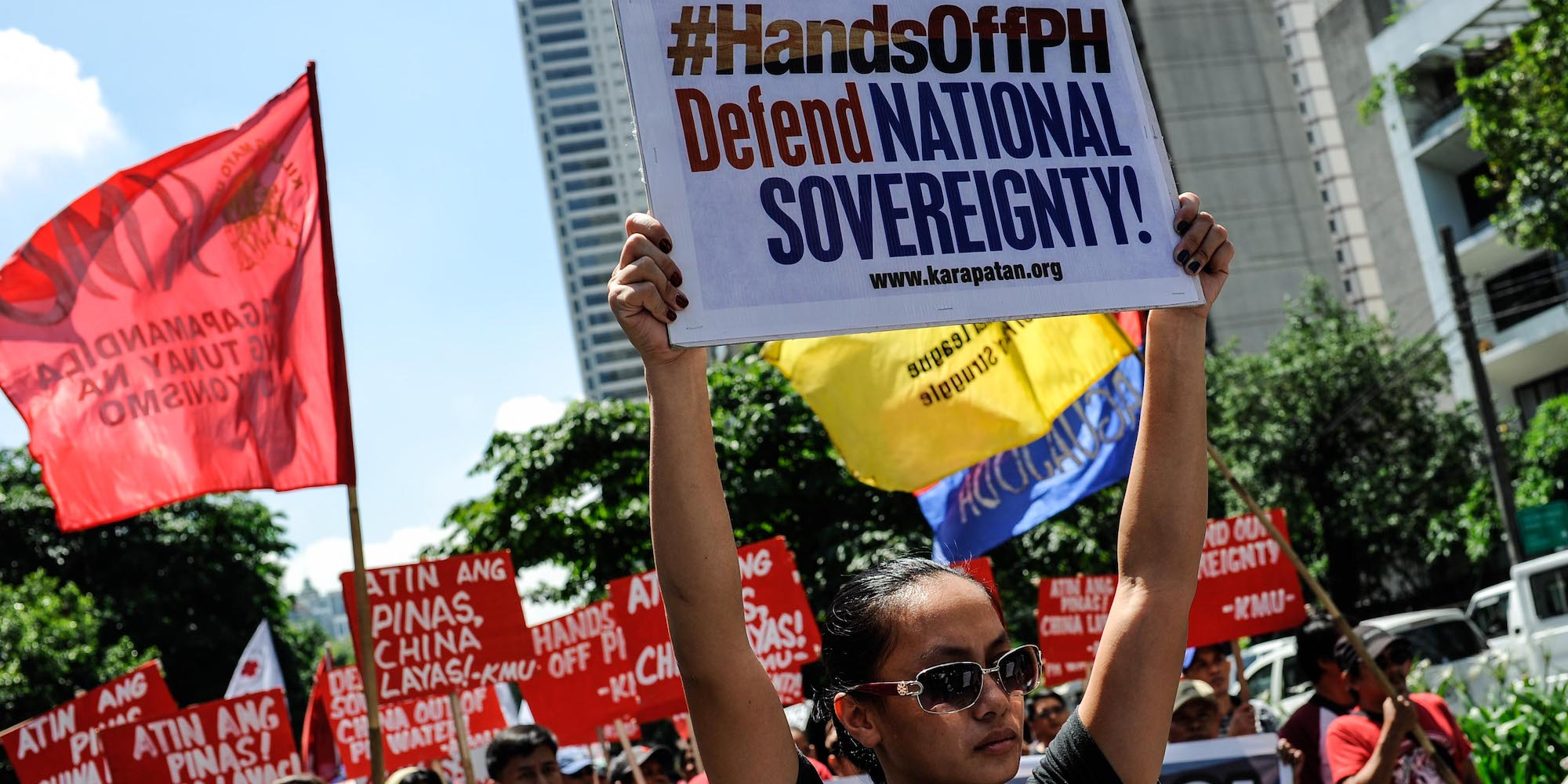- China’s One Belt One Road project and massive infrastructure loans are helping to weaken opposition to its claims in the South China Sea.
- The South China Sea is of critical importance to China which has created new islands through dredging for military bases, and consistently defended its claims despite protests and legal battles with other regional competitors.
- Eyebrows were raised when Malaysia’s president told his Philippino counterpart that signing deals with China would leave you under their “control” recently.
Rodrigo Duterte, the president of the Philippines, came under pressure this week to defend a series of infrastructure loans provided to the country by China, amid fears that failure to repay them could see the country lose key resources.
It’s part of a broader issue affecting Association of South East Asian Nations (ASEAN) countries as China continues to provide huge infrastructure financing as part of its One Belt One Road scheme. In principle, China’s ambition is simply to help develop better links between countries on its periphery with the added benefit of providing greater opportunities for Chinese companies abroad.
However, China is also hoping to overcome opposition claims to the strategically and historically important South China Sea. The country has laid claim to much of the area which contains enormous reserves of oil and gas but also possesses key strategic importance for the region.
“The South China Sea is a key transportation route. China currently gets 80% of its oil imports through the Malacca Strait and it also contains key resources,” according to Daniel O’Neill, Associate Professor of Political Science at University of the Pacific. “The biggest reason for increasing control there is to further China’s regional hegemony,” he told Business Insider.
The South China Sea territory holds an estimated 125 billion barrels of oil and 500 trillion cubic feet of natural gas reserves, according to Global Risk Insights. Similarly, some 10% of global fishing supply is linked to the area, per the Financial Times, and around $3.4 trillion of shipping trade passes through the region each year, according to Global Risk Insights.
China's decision to boost its financing to The Philippines is part of its efforts to sway the country over the issue of the South China Sea. Since Xi Jinping's visit in 2016 China has opened a $9 billion credit line to the country, much of which has gone towards infrastructure projects including dams.
President Duterte was forced to defend the country's decision to sign loans with China over supposedly unfavourable terms which could see Manila lose assets in the event of a default, according to Bloomberg.
The Supreme Justice of The Philippines indicated on March 22 that China could seize control of the country's gas fields in its economic zone in the South China Sea if The Philippines defaults on its obligations for the Chico Dam. That agreement was signed in April last year, and is seen as the template for subsequent financings, according to Bloomberg. The issue surrounds so-called "patrimonial" assets in the Philippines run area of Reed Bank.
As a result, opposition parties in The Philippines demanded that the loan documentation for the country's latest deal with China, the Kaliwa Dam, be made publicly available, something that the Department of Finance subsequently did.
Carrot and Stick
China's approach has been to provide financing in many ASEAN countries in order to split opposition to its moves in the South China Sea. The organisation needs unanimity to pass judgments, meaning China has been able to pick countries off one by one against a UN ruling on the issue of exclusive economic zones in 2016 by the body's Law of the Sea's (UNCLOS) which Beijing subsequently rejected. The ruling was designed to prevent encroachment by China into territorially strategic waters by the other nations involved, including Taiwan, Malaysia, Vietnam, Brunei, and The Philippines.
"As far as the South China Sea goes its importance for China is tremendous and it's adopted a carrot and stick approach in order to divide ASEAN, which includes using loans to pressure its members," adds O'Neill.
However, despite concerns that China's influence might increase even further as it continues to fund projects there have been notable backlashes against the growing superpower.
Malaysia, another nation with claims on the South China Sea, recently became far more hawkish on China following the surprise election of 93-year-old Manathir Mohammed last year.
Ahead of a meeting with Duterte recently the Malaysian premier said "If you borrow huge sums of money from China and you cannot pay, you know when a person is a borrower he is under the control of the lender, so we have to be very careful with that," to ABS-CBN News Channel, as quoted by Nikkei Asian Review.
It's an example of what critics call "debt trap diplomacy" which has affected China's relationships with Sri Lanka and Laos in recent years. Sri Lanka famously gave China a 99 year lease on a strategic port after it ran into financial difficulty with its creditors.
China's attempts to control more and more of the South China Sea has led to reviews from other countries and could see further resistance in the future.

